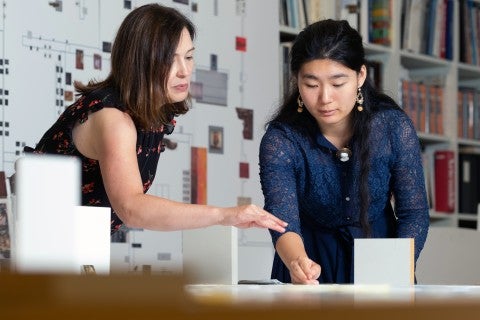Although it was built as a temporary installation in 1996, the once-secret Al Udeid Air Base in Qatar is now the largest U.S. military base in the Middle East. Last year, the Washington Post noted wryly that a planned $1.8 billion “upgrade” to the base would make Al Udeid larger and more permanent even as President Trump signaled a desire to end the so-called “endless wars” in the region.
An upcoming book from History professor Nathan Citino, “The Forever Empire: The Foundations and Longevity of American Power in the Middle East,” was inspired by his own 2018 visit to Al Udeid. There, on a trip sponsored by the Qatari foreign ministry, Citino saw a base that was no longer in any way temporary.
“It was slowly evolving into a permanent campus with permanent buildings and maybe 10,000 or more U.S. military personnel with workout and recreation facilities and a PX (post exchange) and restaurants — in other words, something that was a manifestation of an increasingly permanent American role,” he said.
How do Americans reconcile this ongoing military presence in the region with U.S. ideals of democratic government? How does a nation “born in an anticolonial revolution against the British government,” as Citino said, itself become an empire two centuries later? And given that the U.S. has become an empire in the Middle East, how does it differ from other imperial powers that also played an important historic role in the region, like Britain, France or the Ottoman Empire?
“It’s a big project, but it’s one that enables me to ask a lot of very interesting questions and to reinterpret a story that’s been told before, but in a new way,” Citino said.
Citino recently received a $30,000 Scholar’s Award from the Truman Library Institute in support of continued research for “The Forever Empire.” The project began at the Harry S. Truman Presidential Library and Museum in Independence, Missouri, in 2019, and the grant will allow for continued research at the Truman presidential archives it houses.

